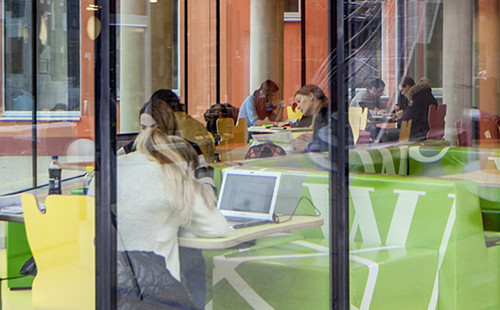Economy, Climate Change and Sustainability
a. Content
We live in an era known as the Anthropocene, implying that humankind has become a significant factor on biological, geological and atmospherical processes on earth. One of the most well-known challenges resulting from this is climate change. Our current global economic system and its provisioning of basic and luxury goods is inevitably connected to the use of natural resources and consequently a range of environmental as well as social issues. Clear scientific evidence and plenty of alarming tendencies indicate that climate change is accelerating beyond expectations: an increase in extreme weather events such as droughts and floods, melting of the permafrost, decreasing carbon stock in forests and other ecosystems, inter alia, resulting in the release of carbon in the form of greenhouse gases into the atmosphere.
The same holds true for large number of other, interconnected environmental pressures and impacts associated with our currently unsustainable use of limited natural resources on a large scale. These include the use of raw materials, of land, of freshwater, or the use of soil, air, waterbodies as sinks for society's waste. All of these are interlinked with further potential impacts like deforestation, loss or extinction of species, overfishing, soil erosion, as well as social issues such as famine or exploitation of workers. There is wide consensus among scientists that many of these problems can only be tackled when simultaneously addressing them. Responding to these developments therefore is also a socio-political and cultural problem.
These are enormous challenges to economies, to businesses, to politicians, to consumers as well as to civil society. Addressing the challenges will require rapid and far-reaching transitions in the use of energy, materials, land, urban structures and infrastructure, as well as industrial production systems. Action also needs to be taken on a range of scales, from the local via the national to the global level.
In this specialisation, we introduce students to the above-mentioned interrelations, an understanding of the socio-economic drivers, a debate of strategies and practices that address the challenges and seize the opportunities from various perspectives and on various scales. We draw on our expertise in empirical assessments of natural resource use by economic activities, ecological macro-economics and political economy, environmental governance, business models of resource efficiency and circular economy as well as scientific approaches to study sustainable behaviour and individual lifestyles.
Students who are interested in understanding the economy as part of and interlinked with the biophysical environment and in the society will be equipped with pertinent tools and methods to analyse the economy’s contribution to environmental problems and to investigate options to transform the economy towards a more sustainable future. This specialisation offers conceptual approaches as well as methods to analyse different economic pathways to achieve the multi-dimensional UN Sustainable Development Goals.
b. How to get in
Students interested in taking this specialization are required to subscribe to the respective "Access to Specialization" course. Note that access is only available before the start of the winter semester and that subscription to this "Access to" course is usually open from around August 25 to around September 05.
A maximum of 30 places for BBE students are reserved in any of the four courses of this specialisation. A "first come- first served" principle is applied in the "Access" course, i.e. the thirty students that subscribed the earliest will receive priority for subscribing to courses in this specialisation. If students have successfully subscribed to the "Access" course, they are free to take any courses of this specialisation in both the winter semester and the following summer semester. Thereby, it is ensured that all students can pass the four courses – and thus the specialisation – in two consecutive semesters. If eligible students will not subscribe to any of the specialisation courses in a given semester, other students that subscribed to the "Access" course (beyond the first thirty candidates) will be nominated.
c. List of courses
All four courses are usually taught every semester.
Track 1: Economy & Environment
Economy & Environment I (various teachers)
Economy & Environment II (various teachers)
Track 2: Sustainable Resource Management
Economy and Sustainability I: Concepts and trends of natural resource use (Stefan Giljum)
Economy and Sustainability II: Actors and solutions for a sustainable resource use (Stephan Lutter)
d. Prospects
This specialisation helps students to better understand the relationship between the environment and the economy, the social causes and implications of climate change, excessive resource use as well as other environmental problems. Thereby, students will be equipped with the knowledge to contribute to the required socio-ecological transformation and to develop strategies to tackle these major societal challenges from a business and policy perspective. Students will thus be enabled to take future-oriented decisions that are in line with international requirements such as the UN Sustainable Development Goals and the Paris Climate Agreement.
Besides any firm that wants to tread more lightly on the planet and develop more sustainable business models, Non-Governmental Organisations (NGOs), various Ministries (Environment, Foreign Affairs etc.), international organisations and community organisations are relevant workplaces for alumni who have completed this specialisation.
Contact
Univ.Doz. Dr. Stefan Giljum
Associate Professor
